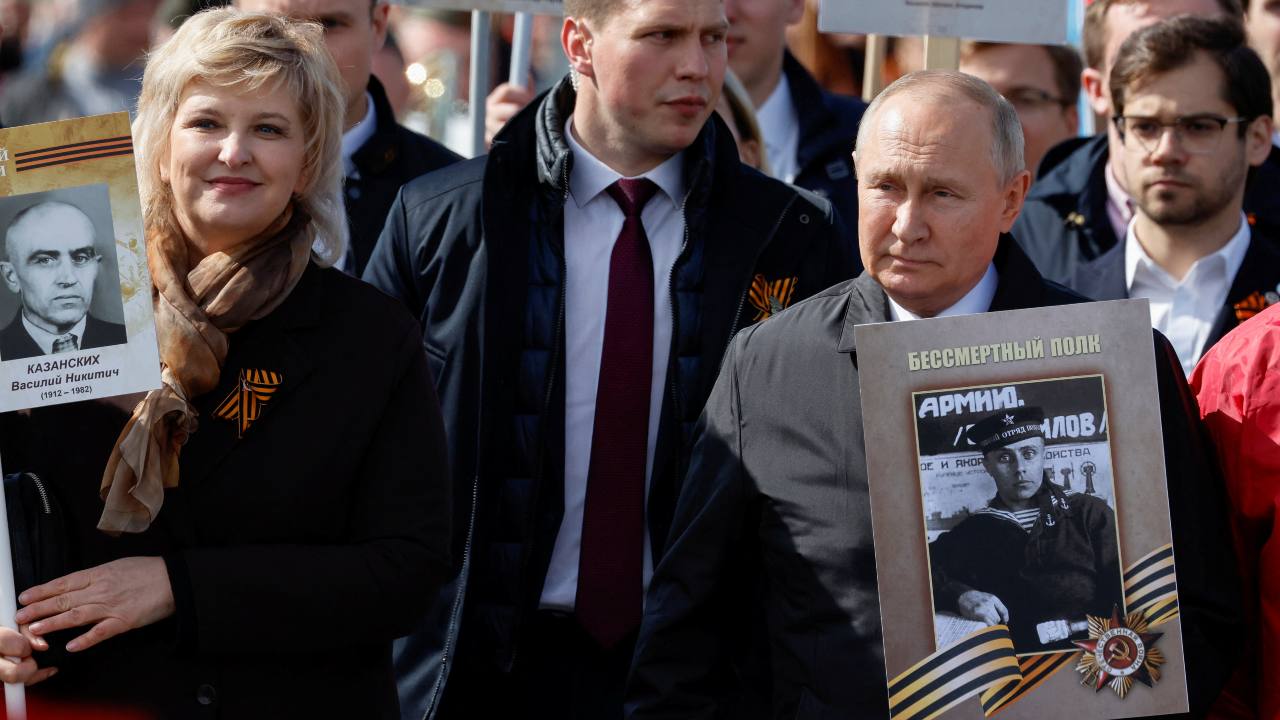Russian President Putin’s Victory Day speech was remarkable for what it did not say. There was no claim of victory over Ukraine; no liberation of Ukraine from imaginary Nazi rule; no general mobilization for war; no recognition of new Eastern Ukrainian People’s Republics; no launch of a Novorossiya; and no annexation of new lands to the Russian Federation. Such claims, had they been made, would have lacked all credibility given the actual state of play in Russia’s aggression against Ukraine.
Instead, Putin sought mainly to justify his invasion of Ukraine as a “necessary” defense against an imagined NATO threat to Russia. That this was his only thematic point is extremely revealing.
First, it means that Russia’s war casualties cannot be concealed from the public, no matter how much Putin tries to suppress information. He needed to give the public a justification for why lives have been lost.
Second, it means that Putin himself knows that the war has not gone well. In the West, we speculate endlessly about whether Putin has access to accurate information and good advice, or whether he lives in a bubble believing his own rhetoric. His Victory Day speech indicates he well understands what’s really going on.
Third, it means that Putin knows he cannot rally the Russian people around the notion that Ukraine is an enemy. He needs to argue that he is fighting NATO, even though that is not the case. This is a weak point in Russia’s war effort going forward, as information is clearly reaching home that Russia is actually fighting against Ukraine and only Ukraine.
Instead of a victory over Ukraine, Putin has presided over a significant desecration of Russia. He has lost perhaps a third of Russia’s conventional military capabilities, including over 20,000 dead soldiers, by some estimates. He has lost over $400bn in central bank reserves, triggered crippling sanctions against the economy, and sparked a European-wide determination to abandon purchases of Russian oil and gas, its main sources of income.
He has also set in motion geopolitical trends that would not have occurred absent Russia’s invasion of Ukraine. Germany has decided to double its defense spending and provide lethal arms to Ukraine. The European Union is financing arms shipments to Ukraine and is now likely to accept Ukraine as a member in due course. Sweden and Finland have decided that it is no longer safe to remain non-aligned and will join NATO. The alliance itself is unified and is establishing a larger military presence in the easternmost members of the alliance as a deterrent against further Russian aggression. The United States is on track to increase its military aid to Ukraine in 2022 by 60-fold over previous levels, and Ukraine is more unified and determined to protect its independence and sovereignty than ever before.
Where Putin takes the war after May 9 is still not clear. In the best-case scenario, his tempered rhetoric may indicate a realization that he may need to draw the war to a close – or at least ratchet down to a low-intensity conflict similar to the war he was waging in Eastern Ukraine prior to February 24.
The worst-case scenario, however, still looms: a major military escalation, possibly including the use of nuclear or chemical weapons, in a last-ditch effort to achieve some kind of victory that Putin could use to justify the damage he has inflicted upon Russia. Ukraine and the West must be prepared for such a scenario.
Yet either way, Ukraine and the world have permanently changed thanks to Putin’s war of aggression. Ukraine will not settle for continued Russian occupation of any parts of Eastern Ukraine and its fight to retake Russian-occupied territory will go on. The West will continue to pour massive humanitarian, economic, and military assistance into Ukraine and plan for its eventual membership in Euroatlantic institutions. And Russia will remain subject to international isolation and crippling sanctions as long as Putin remains in power and Russian forces remain in Ukraine.
This is not the victory Putin was looking for, but it is the clear outcome, for which he alone is responsible.
Ambassador Kurt Volker is a Distinguished Fellow at the Center for European Policy Analysis (CEPA.) A leading expert in US foreign and national security policy, he served as US Special Representative for Ukraine Negotiations from 2017-2019, and as US Ambassador to NATO from 2008-2009.




